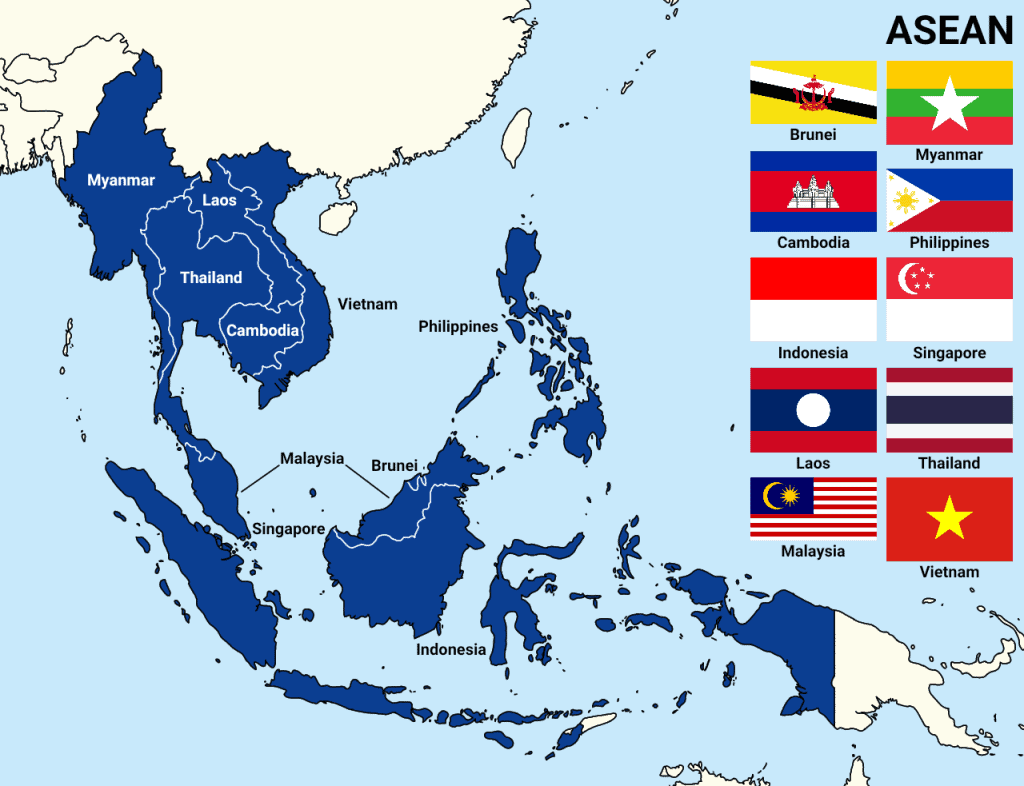7 good reasons to buy a villa in Bali
12/12/2025
Bali real estate Investor tips UncategorizedReprinted from “Investing in ASEAN”, published by Allurentis in November 2022.
ASEAN (Association of Southeast Asian Nations) is an economic organization comprising 10 member states: Brunei, Cambodia, Indonesia, Laos, Malaysia, Myanmar, Philippines, Singapore, Thailand and Vietnam.
Many of these Southeast Asian countries are known for their real estate markets and dynamic tourism, but also for their performance in manufacturing, agriculture, the automotive industry, new technologies… and it’s this diversity that makes ASEAN particularly attractive to foreign investors.

Since its creation in 1967, ASEAN has enjoyed almost constant growth. Even through the challenges of the 2008 global economic crisis, regional GDP has continued to grow steadily at an average annual rate of 5.7% until 2019.
As in most parts of the world, Covid-19 has largely held back economic expansion. However, Foreign Direct Investment (FDI) flows rebounded in 2021 to reach $174 billion, a return to pre-pandemic levels, testifying to the attractiveness of the region’s economy to global investors.
Thanks to its vast market and strong regional integration, ASEAN remains the2nd most popular destination after China for FDI in developing countries, and is set to play an important role in the global economic recovery.
For 2023, the International Monetary Fund (IMF) forecasts economic growth of 6.0% for ASEAN, up from 5.6% in 2022, thus exceeding the expected global GDP growth rate.
Tourism has always been a major source of revenue for ASEAN countries. Before the pandemic, the sector accounted for 14.3% of combined GDP and provided over 13% of jobs, or around 30 million positions. Today, in a context of transition to more sustainable economies, more responsible and environmentally-friendly tourism is at the heart of our concerns.
Each country develops its own sustainable tourism strategy: in the short term, this generally involves supporting the sector with subsidies and encouraging the expansion of domestic tourism, while developing longer-term plans.
Thailand, for example, wants to target high-end markets and evolve into a more qualitative, ecologically responsible destination, adapted to “post-pandemic” concerns.
In particular, in September 2022, the Thai government launched a Long-Term Resident (LTR) visa program for up to 10 years, reserved for the wealthiest foreigners. Among other things, this visa offers tax advantages, simplified procedures for setting up a business and fewer administrative procedures.
The country’s ambition is to welcome more than 1 million wealthy or highly skilled foreigners between 2022 and 2026, and generate more than 1,000 billion baht in domestic spending over this period.
The Asian Development Bank (ADB) is also in favor of a change of direction in the ASEAN tourism sector, seeking out longer-term travelers who make less of a demand on environmental resources than conventional tourism, while still providing a stable source of visitors.
ADB points out that OTAs – vacation rental companies such as Airbnb – have seen bookings for 28 nights or more increase since 2019. As part of the move towards sustainable tourism, the AfDB suggests that governments in the region update their regulations and strengthen their digital infrastructure to enable businesses to cater to this type of “traveler-worker” dubbed “digital nomads”.
Covid-19 showed just how important the tourism sector is for ASEAN member states. As the risks associated with the pandemic continue to recede, the region’s authorities have taken up the challenge and are keen to prioritize different, less resource-intensive forms of tourism. ASEAN countries are also open to foreign expertise and investment to make the most of their natural heritage and resources.
Osiris Investissements diversifies its real estate offering in ASEAN for 2023. After Thailand, Bali and the Philippines, discover new opportunities in Cambodia.
Contact us to find out more about our investment offers.